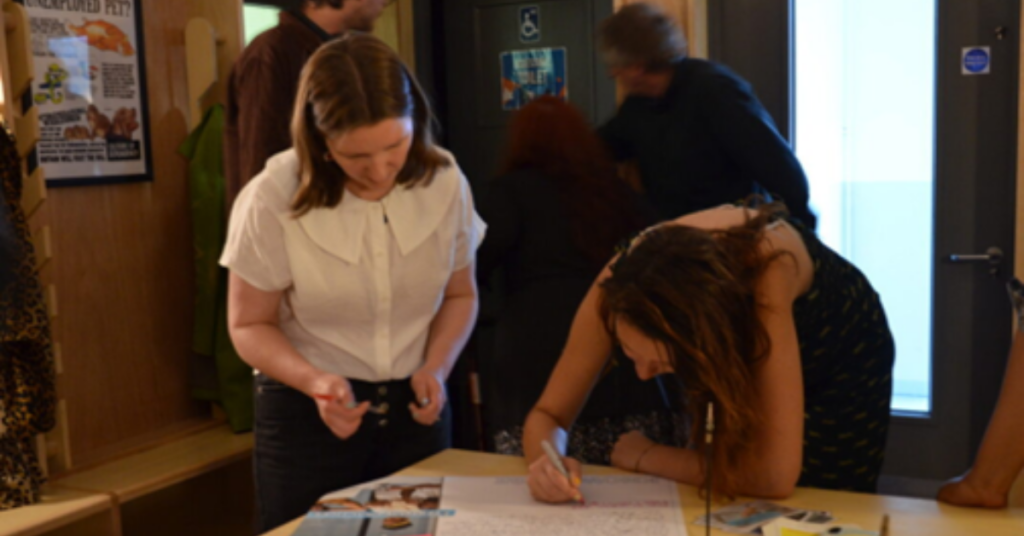Redesigning our Relations through the Commons

The ongoing breakdown of our ecological lifeworlds is propelled by outmoded social systems that must be redesigned to ensure the safe and viable futures of all species on earth. How then can we design new forms of social infrastructures and organisations? Commoning is one response. It is a practice of collaborative community governance for democratic decision-making and the shared use of resources. It reclaims and sustains ownership and agency for communities in ways that support their social and ecological continuity, in unison.
What does it look like to create an educational resource on commoning knowledge and democratic organising? So far, it looks a bit like Deleuze and Guattari’s rhizome (a mass of roots), non-binary, non-hierarchical, and allowing for a multitude of entry and exit points in an ever-expanding network of trial and error. We are by no means the first to try tackling this challenge. Yet, the prevalence of under used digital resources and downloadable toolkits, that proliferated in response to the pandemic and ongoing socio-ecological crises that we explored, made it clear that whatever physical output we provide has to be one piece of a much bigger puzzle. This is in-keeping with the reciprocity and openness needed in any commons project seeking to build alternative futures by a community of stakeholders. It must work in tandem with ongoing concerns based on talking directly to grassroots communities about their needs, getting input from experts in innovative organisations for social good, and establishing long-term relationships.
Identifying the problem was, therefore, the first step in our ongoing Un:Edge project. We’ve had a clear picture of this from previous research, including the Counter-Framing Design project, where we found that organisations and communities who wanted to do things differently— against hierarchies, capitalism as the default, and uneven power relations within existing institutions— often ran into the same practical and ideological problems that hindered their democratic aims day-to-day. We’ve distilled these observations into four interdependent areas of concern that all pivot around our need to redesign our relations, namely 1) relational power, 2) sustainable economies, 3) evaluation criteria and 4) daily practices. For instance, many organisations want to support themselves without vying for grants in competition with potential allies, or without having to perform their disenfranchisement. Others are concerned that the power dynamics in the room are still heavily unbalanced, despite the benefits of democratic decision-making practices.
Our goal here isn’t just to set out the problems but to start building a set of frameworks and resources that give us options to support existing commons, and tools and practices to and trial new ones. We also want to challenge the role of design in creating change, by moving away from solutionism and towards systems approaches that foster responsiveness, flexibility, and generation. This may tangibly result in online videos, downloadable resources, in person workshops, speaking at events, and more, but whatever we create will only be nodes in a broader, ongoing network that grows alongside organisations’ growing needs. Co-learning in situ is foundational to the practice of commoning. Building and sharing stores of this knowledge is essential in supporting the continued strengthening of these new distributed social systems.
Written by: Dr Sharon Prendeville and Anaïs Carlton-Parada.
Loughborough University London
Blogging everything that’s happening at Loughborough University London